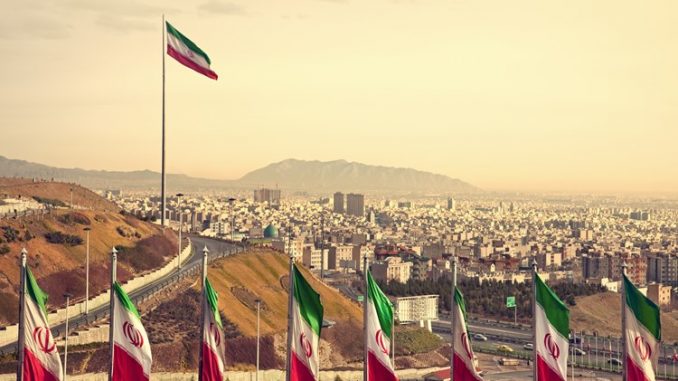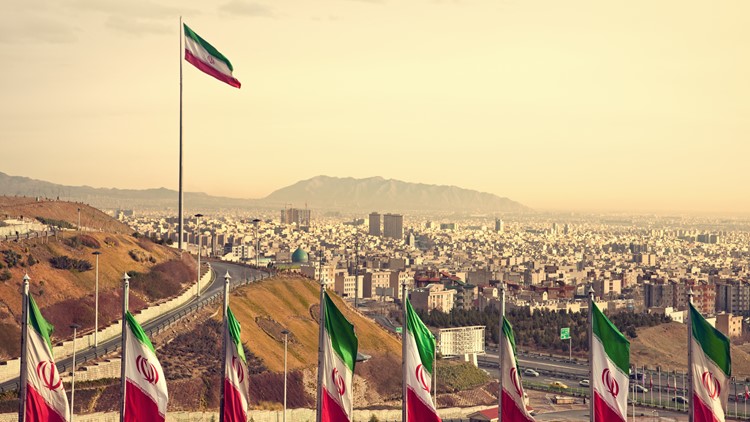
Tehran, Iran – Despite opposition from the United States, a long-standing conventional arms embargo imposed on Iran has expired in line with the terms of a landmark nuclear deal between Iran and world powers, according to the Iranian foreign ministry.
The 13-year ban imposed by the United Nations Security Council (UNSC) came to an end on Sunday as part of Resolution 2231 of the Joint Comprehensive Plan of Action (JCPOA), an accord signed in 2015 that gave Iran sanctions relief in exchange for curbs on its nuclear programme.KEEP
In a statement carried by state media, the Iranian foreign ministry said “as of today, all restrictions on the transfer of arms, related activities and financial services to and from the Islamic Republic of Iran … are all automatically terminated.”
The end of the embargo means Iran will legally be able to buy and sell conventional arms, including missiles, helicopters and tanks, and the Iranian foreign ministry said the country can now “procure any necessary arms and equipment from any source without any legal restrictions, and solely based on its defensive needs”.
However, Iran was self-reliant in its defense, the statement said, adding that “unconventional arms, weapons of mass destruction and a buying spree of conventional arms have no place” in the country’s defense doctrine.
The US unilaterally withdrew from the JCPOA in May 2018, imposing waves of harsh economic sanctions on Iran. US President Donald Trump’s administration has also employed every means in its power to unravel the nuclear deal and stop the lifting of the arms embargo on Iran.
The latest came in early October when 18 Iranian banks were blacklisted, including those that process humanitarian trade transactions – effectively severing Iran’s financial sector from the global economy.
The US administration has been fervently supported in its efforts by Israel and a number of Arab countries that oppose Iran’s expanding regional influence.

In August, the US tabled a UNSC resolution to indefinitely extend the arms embargo, but it was rejected.
From the 14 UNSC member states, the so-called E3 of France, Germany, and the United Kingdom, and eight others abstained while Russia and China opposed the extension. Only the Dominican Republic supported the resolution.
After announcing the triggering of a process to “snap back” sanctions on Iran and waiting for a month, the US in September announced it has unilaterally reinstated all UN sanctions on Iran that were lifted as part of Resolution 2231.
If implemented, the move would automatically extend the arms embargo as well.
But an overwhelming majority of UNSC member states once more rejected the bid, saying no process to reinstate sanctions was started because the move had no legal basis.https://imasdk.googleapis.com/js/core/bridge3.416.2_en.html#goog_1940090891Play Video
The US threatened “consequences” for countries that do not adhere to its assertion but has yet to take action.
In trying to indefinitely extend the arms embargo on Iran, the US claims the lifting of the embargo will open a floodgate of arms deals that would quickly serve to further destabilise the region.
EU embargoes on conventional arms exports and missile technology are still in place and will remain in force until 2023.
The foreign ministers of the E3 in July issued a joint statement that said while the three countries remain committed to fully implementing Resolution 2231, they believe the lifting of the arms embargo “would have major implications for regional security and stability”.
Russia and China
In practice, it might take some time for Iran to be able to utilise the freedom from the embargo.
For one, relentless US sanctions have significantly restricted Iran’s ability to buy advanced systems, whose purchase and maintenance could cost billions of dollars.
Furthermore, China and Russia, or any other country pondering arms sales to Iran, would act based on their foreign policy interests, which would have to consider the balance of power and future economic interests in the Gulf and the wider region.
Iran and China have been considering a major 25-year strategic partnership deal, the details of which have yet to be published.
According to Tong Zhao, a senior fellow at the Carnegie-Tsinghua Center for Global Policy, the deal has already caused international scrutiny, so China, which wants to demonstrate the image of a “responsible power”, will tread carefully.
“More importantly, if [Joe] Biden is elected the new US president – which seems increasingly likely – Beijing would want to reboot the US-China relationship with a new US administration,” he told Al Jazeera.
As for Russia, a 2019 US Defense Intelligence Agency report speculated Iran would buy Su-30 fighters, Yak-130 trainers, T-90 tanks, Bastion mobile coastal defence missile systems, and the S-400 surface-to-air missile defence systems.
Iranian Defence Minister Brigadier General Amir Hatami travelled to Russia in late August to visit the International Military-Technical Forum Army-2020 and hold talks with senior Russian officials. The trip boosted speculations Iran is interested in Russian arms.
However, Nicole Grajewski, a research fellow with the International Security Program at the Belfer Center for Science and International Affairs, says there is no indication Russia and Iran have finalised a list of potential arms for negotiations.
“It is not totally unfounded to suggest that Russia and Iran may wait until the US presidential elections,” she told Al Jazeera. “Both sides have reasons not to antagonise Biden if he is elected: Iran with the JCPOA and Russia with New START.”
New START is an arms reduction treaty and the last existing nuclear arms control pact between Russia and the US that expires in February. Russian President Vladimir Putin on Friday called for a one-year extension of the pact.
Moreover, Grajewski pointed out that while the Trump administration has been inconsistent in implementing provisions of the Countering America’s Adversaries Through Sanctions Act (CAATSA), Russia will take US sanctions into account – especially since Moscow would like to sell weapons to states that could become subject to secondary US sanctions.
But she believes financing to be the biggest impediment to a potential major Iran-Russia arms deal.
“Russia won’t be as willing as China to sell Iran weapons on barter like it did in the 1990s,” Grajewski said. “Plus, Russia doesn’t want to damage its relations with the UAE, Saudi Arabia and Israel by providing Iran with high-tech or advanced weapons.”
But the researcher believes Iran and Russia may enjoy a boost in military cooperation and contacts that have increased in the past few years due to shared interests in Syria and a general improvement in bilateral relations.
“There will likely be additional military exchanges and drills in addition to an increase in efforts that promote the interoperability between the Russian and Iranian armed forces at the tactical level,” she said.
Iran’s perspective
Following the implementation of the nuclear deal in 2016, Russia completed delivery of the S-300 air defence missile system to Iran, which was successfully tested by Iran in early 2017.
This finally concluded an $800m deal signed between the two states in 2007 that was left unfulfilled by Russia after multilateral sanctions pressure on Iran grew.
But by that time, a lot had changed inside Iran.
As Iranian defence expert Hossein Dalirian explains, after years of multilateral and unilateral sanctions, Iran concluded it has to rely on the expertise of its own engineers and experts to boost defence capabilities.
“With this perspective, extensive efforts were launched inside Iran to develop a diverse range of advanced arms and systems that are now produced locally, which are on par with those of developed nations, even as attested by military experts of Iran’s enemies,” he told Al Jazeera.
Among others, these include unmanned aerial vehicles (UAVs) and the Bavar-373 surface-to-air missile defence system, which was officially rolled out in August 2019, and which Iran says is on par with the state-of-the-art Russian S-400 system.
However, Dalirian said, it has not been possible, or economically feasible, for Iran to produce a number of armaments, including fifth-generation fighter jets.
“Even though Iranian experts have recently achieved technological know-how to produce fighter jet parts, and built Kowsar, which is on par with fourth-generation fighter jets, it seems that purchasing fighter jets might be pursued by Iran at the same time as locally developing modern fighter jets,” he said.
Dalirian says many countries have shown interest in Iranian armaments, but have been unable to buy them due to sanctions.
“Now it remains to be seen what Iran’s enemies, specifically the US, have planned for potential buyers of Iranian arms in political terms,” he said.https://imasdk.googleapis.com/js/core/bridge3.416.2_en.html#goog_1396304109Play Video
SOURCE : AL JAZEERA

